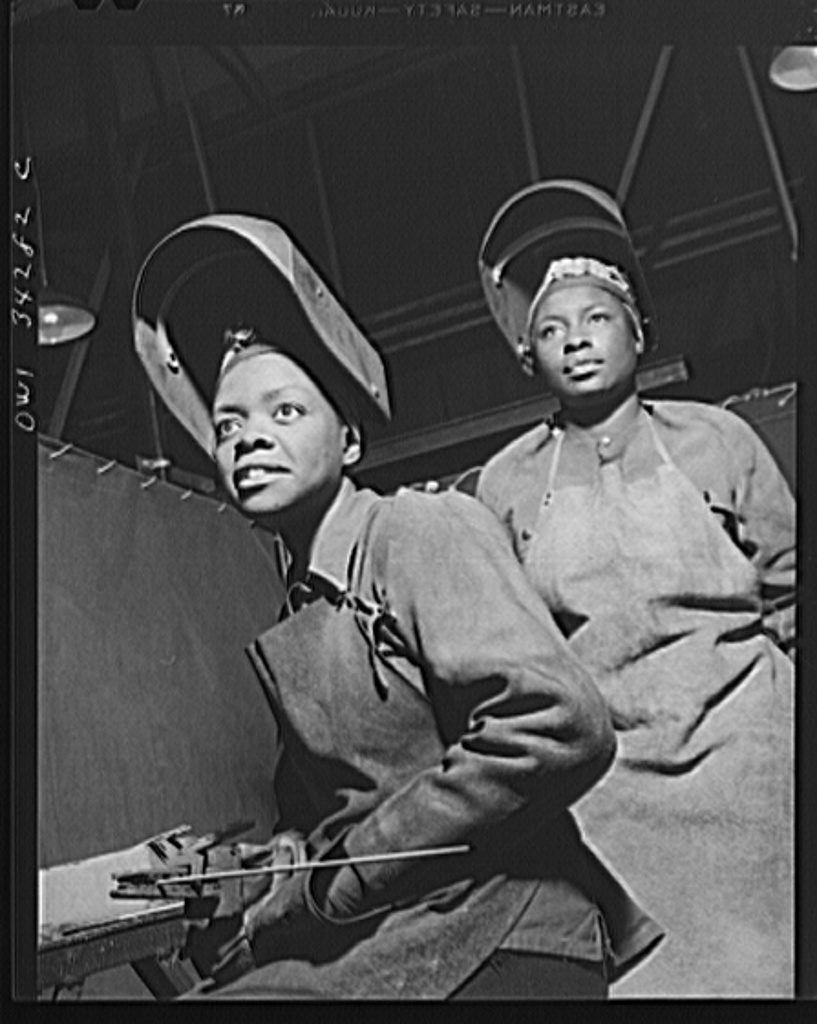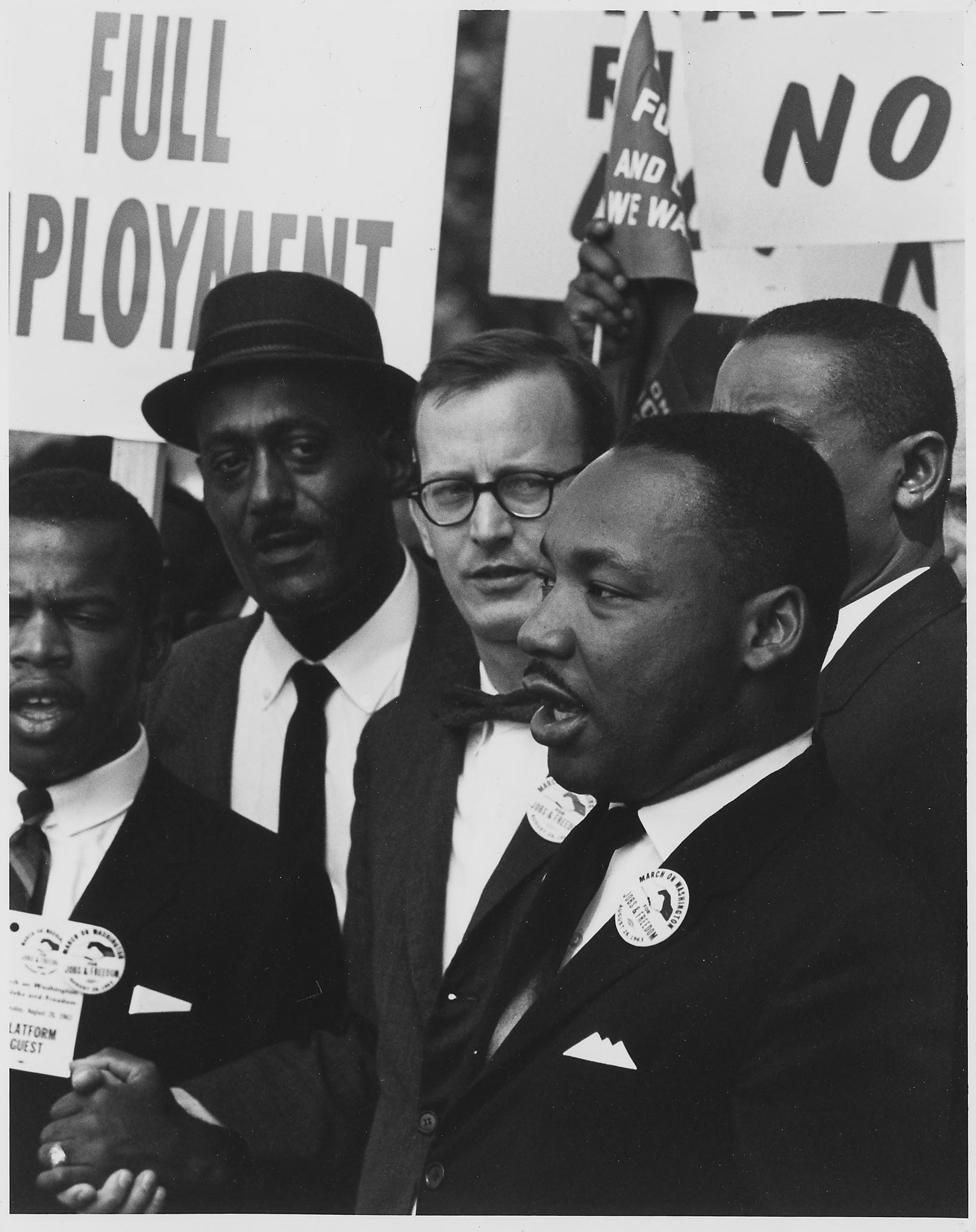By Chad Dion Lassiter, MSW
Sixty years ago, on the day before the March on Washington for Jobs and Freedom, NASW Social Work Pioneer W.E.B. DuBois died.
The famed sociologist and civil rights activist was 95 years old and had moved to Ghana several years earlier to create an African diaspora encyclopedia. He is being honored in October 2023 as a social work pioneer by the NASW Foundation. Upon his death, author and poet Maya Angelou led a march to the U.S. embassy in Accra. One placard read, “America, a White Man’s Heaven and a Black Man’s Hell.”
That simple, angry slogan captured the disparity between Black and white lives in America which civil rights leaders of the March on Washington hoped to make visible on August 28, 1963.
The hell Angelou was referring to was the dire economic conditions many of the 250,000 African Americans who had come to the Lincoln Memorial had to go back to when the march was over.
The dream King spoke about in his speech that day included decent housing, quality education, and full employment. But that economic dream for Black America has been quietly lost in our remembrances of one of the largest protests of the 20th century.
There is a significant price we pay for this forgetting.
We have forgotten that King also sought economic opportunities
America has chosen to remember King’s most famous line from that hot summer day, “I have a dream that my four little children will one day live in a nation where they will not be judged by the color of their skin but by the content of their character.”

We have chosen to forget his description of Black economic life. “One hundred years later, the Negro lives on a lonely island of poverty in the midst of a vast ocean of material prosperity.”
We have forgotten that The March on Washington marked 100 years since the Emancipation Proclamation freed some slaves.
We have forgotten DuBois’s death and that Roy Wilkens said to the throng gathered on the Mall, “If you want to read something that applies to 1963 go back and get a volume of The Souls of Black Folk by DuBois, published in 1903.”
According to Pew Research Center, six out of ten white adults believe there has been a great deal or a fair amount of progress on racial equality in the last 60 years. Only 30 percent of Black adults feel this way.
This is one of the costs of forgetting. The inability of those who remember and those who forget to have a shared vision. Instead, we don’t know what is happening with the other, especially the most marginalized. And we don’t want to know.
Throughout the ages, Black leadership, including DuBois and Martin Luther King, Jr., have been embroiled by the question of how to advocate for change in the midst of two Americas with vastly different outlooks.
“Over a 70-year career, DuBois took every conceivable approach to the race problem. He was a provocative propagandist and measured scholar. He was for integration and then for separation. He believed in the American dream and disdained it. He believed in the power of politics and the ambiguity of culture. He brawled and he stood aloof. He embraced indigenous liberation and global communism,” Wilkens said.
After the March on Washington, after receiving his Nobel Peace Prize the following year, King too took a different approach and began to pursue a socioeconomic agenda. He linked the escalation of the Vietnam War to the deteriorating conditions of the poor in the United States.
At his most controversial speech at Riverside Church in New York exactly one year before he was assassinated, King thundered. “A nation that continues year after year to spend more money on military defense than on programs of social uplift is approaching spiritual death.”
On August 26, 2023, The Leadership Conference on Civil and Human Rights marks the 60th Anniversary of the March on Washington by co-chairing the 2023 March on Washington. This march is not a commemoration, but a continuation of Dr. Martin Luther King Jr’s message and Dream.
Programming starts at 8 a.m. ET at the Lincoln Memorial in Washington, D.C., followed by a march from 1-3 p.m. ET.
As we celebrate the 60th anniversary of the March on Washington for Jobs and Freedom, we shouldn’t forget that by 1968, the audience that had praised King had turned against him.
His approval rating plummeted. Black civil rights leaders disagreed with his tactics. The media denounced his anti-war stance. President Lyndon B. Johnson, who had fought for the passage of the Civil Rights Act of 1964 and the Voting Rights Act of 1965, stopped taking his calls.
Even the ancients knew the power of remembering our triumphs and our struggles.
“Only take heed to thyself, and keep thy soul diligently, lest thou forget the things which thine eyes have seen, and lest they depart from thy heart all the days of thy life: but teach them thy sons, and thy son’s sons ….” it reads in Deuteronomy.
Remembering is a tribute to those who fought battles we no longer have to fight. Remembering is inspiration for those whose courage we admire. Remembering teaches the values of persistence and resilience that are needed to make change.
Most importantly, remembrance reminds us that in every generation there has been powerful political forces who seek to control memory by imposing superficial narratives devoid of content to facilitate forgetting.
Seven out of ten respondents told Pew Research Center “they approve of marches and demonstrations that don’t disrupt everyday life...”
They have forgotten that social justice will always demand creative disruption of today’s status quo. It will always demand that we trouble the waters.
About the Author

Chad Dion Lassiter is a nationally recognized expert in race relations. He has worked on race, peace, and poverty-related issues in the United States, Africa, Canada, Haiti, Israel, and Norway, and is frequently featured in the media providing commentary and solutions to racial issues.
Lassiter is executive director of the Pennsylvania Human Relations Commission, where he has legislatively delegated authority to investigate filed complaints alleging the occurrence of unlawful discrimination in the areas of employment, housing and commercial property, education, and/or regarding public accommodations.
Disclaimer: The National Association of Social Workers invites members to share their expertise and experiences through Member Voices. This blog was prepared by Chad Dion Lassiter in his personal capacity and does not necessarily reflect the view of the National Association of Social Workers.




